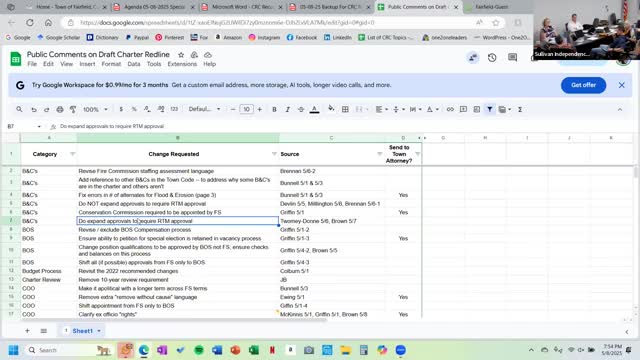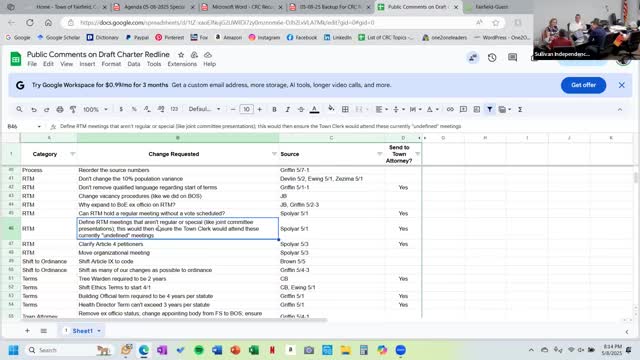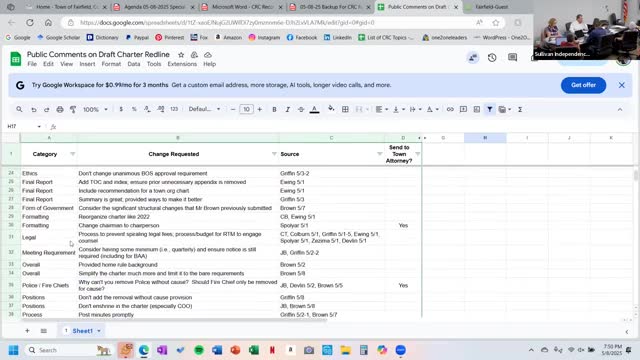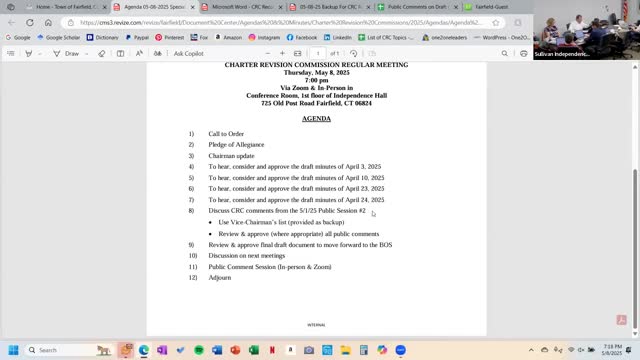Article not found
This article is no longer available. But don't worry—we've gathered other articles that discuss the same topic.

Charter summary corrected: Flood, resilience and erosion board membership increased to seven

Charter debate: termination clauses, terms and employment agreements draw sustained discussion

Commission votes to remove newly added RTM confirmation requirement for appointments

